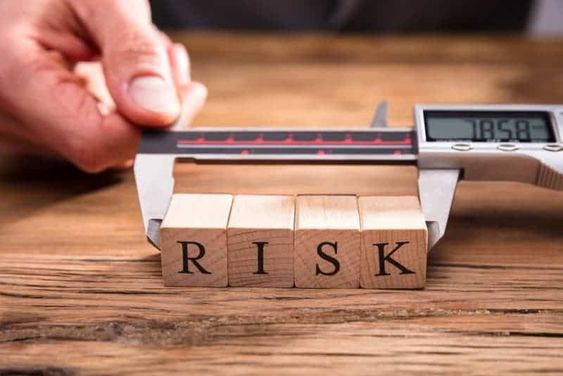Risky Investments, Lucrative Returns: Navigating Property Markets in Hazardous Zones
Read latest blogs and articles from Housystan

The Information mentioned here was last updated on:
21/2/2026Risky Investments, Lucrative Returns: Navigating Property Markets in Hazardous Zones
Introduction: The Thrill and Danger of High-Stakes Property Investment
In the ever-evolving world of real estate, there’s a growing fascination with properties located in hazardous zones. From flood-prone coastal areas to regions with seismic activity, riskier markets are luring bold investors with the promise of high returns. While the dangers are real, so too are the opportunities. This article explores the dynamics of investing in hazardous zones, the critical factors to consider, and how savvy investors can potentially turn peril into profit.
- Verified Tenants/Buyers
- Unlimited Property Listing
- Zero subscription/charges fee
Understanding Hazardous Zones: What Makes an Area Risky?
Hazardous zones are typically defined by their susceptibility to natural disasters or environmental risks. These include floodplains, wildfire-prone forests, hurricane belts, earthquake fault lines, and even regions near industrial sites with contamination risks. Properties in such areas are often priced below market averages, creating an entry point for investors willing to shoulder the potential hazards. However, understanding the unique challenges of each zone is crucial before committing capital.
The Allure of High Returns: Why Investors Take the Plunge
One of the main reasons investors flock to hazardous zones is the potential for lucrative returns. Lower initial acquisition costs, coupled with high demand for housing in scenic or otherwise desirable locations, can rapidly appreciate property values. In post-disaster recovery phases, quick flips and redevelopment projects often yield impressive profits. Investors with a high-risk tolerance see these markets as a way to outperform more stable, saturated regions.
Insurance and Mitigation: Essential Shields Against Loss
No conversation about investing in risky property markets is complete without discussing insurance. Specialized coverage—such as flood, earthquake, or wildfire insurance—is non-negotiable. However, premiums can be steep, and availability may be limited. Advanced mitigation strategies, including elevating structures, using fire-resistant materials, or retrofitting for earthquakes, not only protect assets but can also lower insurance costs and attract more renters or buyers.
Regulatory Hurdles: Zoning Laws and Building Codes
Local governments impose strict regulations on construction and use in hazardous zones. Prospective investors must navigate a maze of building codes, environmental assessments, and zoning restrictions. In some cases, development may be outright prohibited or subject to frequent reviews. This regulatory landscape can delay projects or increase costs but also acts as a barrier to entry, reducing competition for those who do their homework.
Financing Challenges: Securing Loans in High-Risk Areas
Financing property in hazardous zones is often more complicated than in conventional markets. Traditional lenders may be reluctant to back projects with a high risk of loss. When financing is available, it often comes with stricter terms or higher interest rates. Some investors turn to private lenders or syndicate investments to spread the risk. Understanding these financial dynamics is key to structuring a profitable deal.
Market Timing: Striking When the Iron is Hot
Timing is everything in hazardous zone investing. Many of the best deals arise in the aftermath of disasters when property values are temporarily depressed. Investors who can move quickly—either through cash offers or pre-arranged financing—can acquire assets at a deep discount. Holding onto these properties as recovery efforts restore infrastructure and market confidence can lead to significant appreciation.
Economic Incentives: Tax Breaks and Government Support
In an effort to revitalize risky markets and encourage redevelopment, local and federal authorities often offer economic incentives. These can include tax abatements, grants for mitigation measures, or low-interest loans. Savvy investors leverage these programs to reduce their upfront costs and improve long-term returns, but staying updated on eligibility requirements is essential as programs can change quickly.
Case Studies: Learning from Successes and Failures
History is full of examples where investors in hazardous zones have either struck gold or faced ruin. After Hurricane Katrina, for instance, parts of New Orleans became hotbeds of investor activity, with some neighborhoods rebounding spectacularly and others languishing. In California, investors in wildfire zones have seen both sharp appreciation and devastating loss. Each story highlights the importance of due diligence, local market knowledge, and risk management.
The Role of Technology: Data-Driven Risk Assessment
Modern technology offers investors invaluable tools for assessing risk. Geographic information systems (GIS), predictive modeling, and real-time hazard monitoring allow for more informed decision-making. Access to accurate data on historic disaster frequency, soil stability, and insurance claim trends can help investors evaluate whether the potential reward justifies the risk. Those who invest in understanding the data are better positioned to avoid costly mistakes.
Community Impact: The Human Side of Risky Investments
Investing in hazardous zones isn’t just about numbers. These markets are often home to vulnerable communities. Responsible investors consider their impact on local residents, supporting resilient infrastructure and sustainable development. By partnering with local governments and organizations, investors can help create safer, more vibrant neighborhoods, benefiting both their bottom line and the community at large.
Conclusion: Calculated Risk, Rewarding Outcomes
Navigating property markets in hazardous zones is not for the faint of heart. Yet for those with a clear strategy, robust risk management, and a willingness to engage with complex regulatory and financial environments, the potential for lucrative returns is real. Success in these challenging markets demands more than deep pockets—it calls for due diligence, adaptability, and a commitment to responsible investing. By mastering these factors, investors can turn risk into remarkable reward, shaping both their futures and the landscapes they invest in.